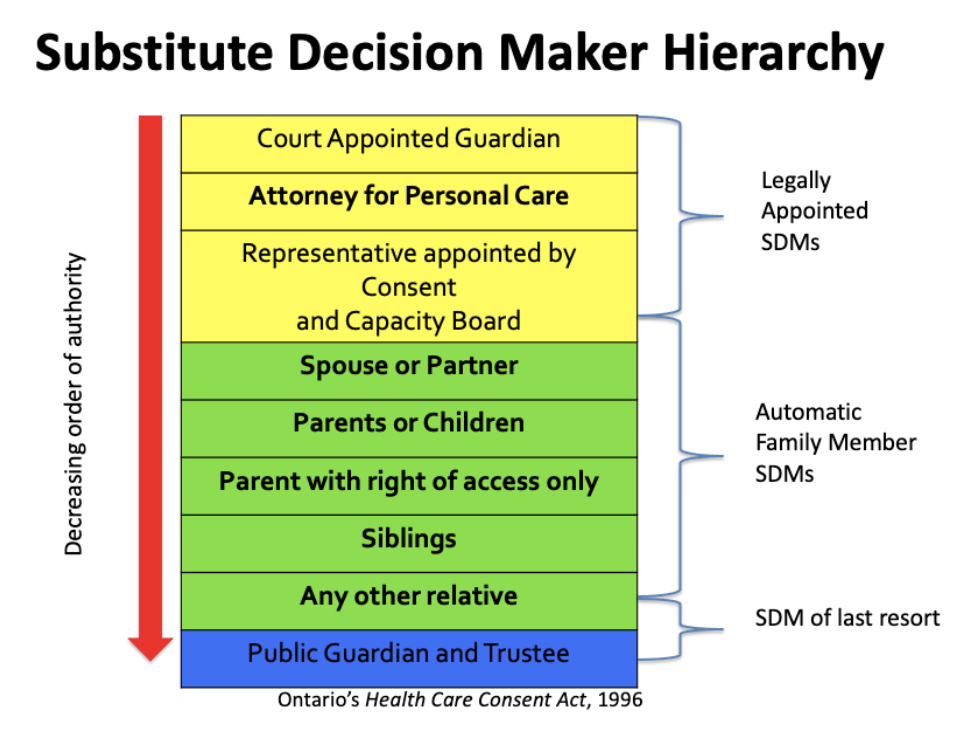Some examples of when you might choose to appoint an attorney for personal care:
- You would prefer someone other than your automatic SDM to make your health care decisions if needed
- You have multiple family members at the same level of the SDM hierarchy (eg. Multiple children or siblings) and you would prefer that only one or two act as your SDM.
- You would prefer a friend rather than a family member to act as your SDM.
Althea chose to appoint her two sisters as joint Attorneys for Personal Care instead of her mother who would be her automatic SDM.
Bob’s children do not get along.
After reviewing the role of the SDM, he decides to appoint his middle son as Attorney for Personal Care.
Doing the Power of Attorney Paperwork
- A Power of Attorney for Personal Care is a document, in writing, in which you name someone to be your attorney.
- The word “attorney” does not mean lawyer. In this case, an attorney is a type of SDM.
- In order to sign a POAPC you must be over the age of 16. You must also be mentally capable of understanding the document and any instructions you may include.
- To be valid, the document must:
- be signed by you voluntarily, of your own free will
- be signed by you in the presence of two witnesses
- be signed by two witnesses in front of you.
- You do not need to go to a lawyer to complete this, however legal advice may be helpful in some circumstances.
- Visit the website for the attorney general’s office to learn more and download the appropriate forms. (or attach the link to the forms)
- If you choose to appoint an Attorney for Personal Care make sure you discuss it with the person(s) you appoint. Your family members and healthcare providers need to know who this is. Healthcare providers may ask for a copy of the Power of Attorney document.
More information can be found at:
Frequently Asked questions
What kind of decisions might an SDM make on my behalf?
If you cannot speak for yourself, your SDM(s) will make decisions for your care. These decisions will be based on the conversations you already had about your wishes, values and beliefs. These decisions could include things like whether or not to:
- have tests, surgery or other medical care
- stop or start a treatment
- move to a long-term care home
What if I am not happy with my automatic substitute decision-maker?
- If you are not happy with your automatic SDM, you may appoint an Attorney for Personal Care.
- You must be capable at the time you appoint an Attorney for Personal Care.
What is the difference between an Attorney for Personal Care and an SDM?
An Attorney for Personal Care (POAPC) is one type of SDM. They are the second highest on the list of SDMs.

What is the difference between an Attorney for Personal Care and an Attorney for Property?
- A Power of Attorney for Personal Care ONLY gives the person the ability to make decisions about healthcare. They cannot make decisions about your property or finances.
- For property and finances, a person must prepare a Power of Attorney for Property.
- A person does not need to choose the same person for both. Each is appointed in a separate document.
- For more information:
Where would you like to go next?